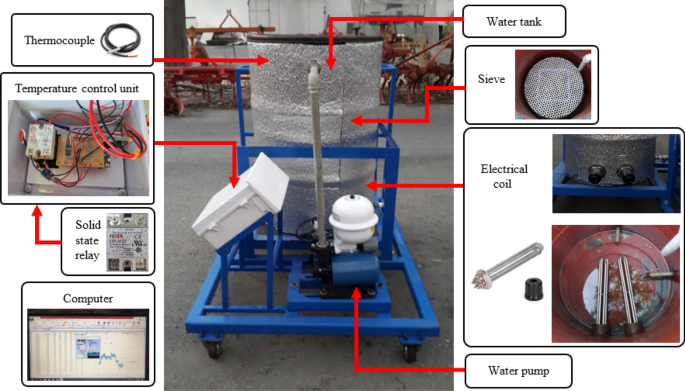Are Products From Sugarcane Scalable for Mass Manufacturing?
Opening the Potential of Products From Sugarcane: a Comprehensive Guide
The capacity of sugarcane expands much past its standard use for sugar production. This overview checks out the complex applications of sugarcane, from power and biodegradable materials to health items. By examining its journey from field to manufacturing facility, it exposes just how lasting practices can change waste into important sources. As markets look for eco-friendly services, the inquiry remains: how can these innovations reshape our method to farming and production?

The Trip of Sugarcane: From Area to Manufacturing facility
Sugarcane undertakes an interesting transformation as it takes a trip from lush fields to bustling manufacturing facilities. In the fields, the high, green stalks are collected, normally by mechanical ways or manual work. As soon as reduced, the sugarcane is promptly moved to refining centers to guarantee optimum quality. At the manufacturing facility, the initial step involves crushing the walking cane to extract the pleasant juice, which includes sucrose. Products From Sugarcane. This juice is after that filteringed system and made clear, removing impurities. Following this, it undertakes evaporation to concentrate the sugar material, bring about condensation. The resulting sugar crystals are separated from the staying molasses with centrifugation. Lastly, the sugar is dried and packaged for circulation. Throughout this journey, preserving quality and effectiveness is necessary, as the approaches used directly effect the product's final top quality. This transformation not only highlights the agricultural significance of sugarcane yet also its significant role in the worldwide economic climate
Sugar and Its Derivatives: Even More Than Just Sweetness
The improvement of sugarcane right into polished sugar opens up the door to a wide array of products and applications that expand beyond simple sweetness. Sugar and its derivatives, such as molasses, brownish sugar, and glucose, play crucial roles in various sectors, consisting of food, pharmaceuticals, and cosmetics. In the food industry, these ingredients boost tastes, enhance texture, and work as preservatives.Molasses, a by-product of sugar production, is rich in nutrients, making it a useful component in health foods and pet feed. Glucose, a simple sugar acquired from sugarcane, functions as a substantial energy resource in sporting activities nutrition and is vital in the manufacturing of confectionery. Additionally, sugar derivatives are utilized in fermentation processes, contributing to the manufacture of alcoholic drinks and other microbial items. In general, the adaptability of sugar and its derivatives highlights their importance past simple sweet taste in daily life.
Biofuels: Harnessing Power From Sugarcane

A significant section of global biofuel production now counts on sugarcane, identified for its high energy return and performance in transforming sunlight right into biomass. This tropical crop offers as a main source for ethanol, a renewable gas that can change fuel in cars. Sugarcane's ability to produce even more ethanol per hectare than various other feedstocks, such as corn, adds to its boosting appeal amongst biofuel producers.The fermentation procedure of sugarcane juice or molasses creates ethanol, which can be blended with nonrenewable fuel sources to reduce greenhouse gas discharges. Furthermore, by using the residual bagasse from sugarcane handling, energy can be generated through burning, additional enhancing the sustainability of biofuel production. As countries seek to mitigate climate change influences, sugarcane biofuels use an appealing service, strengthening power safety and advertising farming sustainability while sustaining rural economic situations.
Eco-friendly Plastics: The Sustainable Different
Exactly how can markets shift to even more lasting practices despite growing plastic air pollution? One encouraging option depends on biodegradable plastics stemmed from sugarcane. Unlike traditional petroleum-based plastics, these bioplastics offer an environmentally friendly alternative that can substantially minimize environmental impact. Made from renewable energies, sugarcane-based plastics decompose much more rapidly in numerous problems, lessening land fill accumulation and marine debris.The production of eco-friendly plastics not just addresses waste administration obstacles yet likewise aligns with the boosting customer demand for lasting products. Industries adopting these products can enhance their brand image while adding to a round economy. In addition, the modification to biodegradable choices motivates technology and investment in new technologies, cultivating a greener industry landscape.As a lot more business acknowledge the advantages of sugarcane-derived plastics, the possibility for extensive fostering increases, leading the way for a much more lasting future in product packaging and product style.
Animal Feed and Fertilizers: Utilizing Results
The byproducts of sugarcane handling hold considerable potential for both animal nutrition and natural plant foods. These results can be incorporated right into animal feed, supplying vital nutrients while decreasing waste. In addition, they can function as efficient natural fertilizer options, improving dirt health and wellness and promoting lasting agricultural techniques.
Results in Pet Nourishment
While sugarcane is mainly valued for its sucrose content, its results play a crucial duty in pet nourishment, particularly in the kind of animal feed and plant foods. The coarse deposit referred to as bagasse, produced throughout the extraction of juice, functions as an important source of roughage for livestock. This high-fiber product enhances digestion and advertises general wellness in ruminants. In addition, molasses, a byproduct of sugar refining, is rich in power and can be used to supplement animal diet plans, improving palatability and nutritional value. Vinasse, a fluid result from ethanol production, has important nutrients and can be used as a feed additive. On the whole, sugarcane byproducts contribute substantially to sustainable animal nutrition practices.
Organic Fertilizer Options
Making use of sugarcane results extends beyond animal nourishment to incorporate organic plant food alternatives that benefit farming practices. The fibrous deposits, such as bagasse and filter cake, serve as efficient natural fertilizers, improving dirt health and wellness and improving crop yields. These materials are abundant in nutrients, including potassium, nitrogen, and phosphorus, crucial for plant development. When disintegrated, they enhance soil framework, water retention, and microbial task, cultivating a lasting farming community. Furthermore, using sugarcane results for fertilizing decreases reliance on synthetic fertilizers, advertising eco-friendly agricultural approaches. By recycling these byproducts, farmers can add to a circular economy while maximizing their efficiency and decreasing waste. This strategy exhibits innovative approaches in lasting agriculture, leveraging sugarcane's full capacity.
Health and Wellness: Nutritional Benefits of Sugarcane
Numerous research studies highlight the nutritional benefits of sugarcane, making it a useful addition to a balanced diet plan. Rich in important nutrients, sugarcane contains considerable quantities of minerals, vitamins, and carbs, particularly vitamin Calcium, c, and potassium. These elements add to general wellness, sustaining immune feature and bone strength.Moreover, sugarcane is an all-natural source of anti-oxidants, which aid combat oxidative stress and swelling in the body. Its high fiber web content aids in food digestion, promoting intestine health and wellness and avoiding bowel irregularity. In addition, sugarcane juice has been connected to hydration and power replenishment, making it an excellent option for athletes or those involving in difficult anchor activities.Furthermore, the glycemic index of sugarcane is fairly reduced, permitting a much more gradual launch of power, which may be helpful for individuals managing blood sugar levels. In general, incorporating sugarcane into one's diet can offer a rejuvenating and nutritious alternative for health-conscious people.
Developments in Sugarcane Products: Future Trends and Possibilities
What technologies lie in advance for sugarcane products as navigate to these guys industries look for to enhance sustainability and consumer appeal? The future of sugarcane items is poised for significant improvements, driven by the demand for environment-friendly choices. Advancements in bio-based product packaging, acquired from sugarcane, are obtaining traction, providing a sustainable alternative to standard plastics. Additionally, the expedition of sugarcane's bioactive substances is most likely to lead to brand-new wellness supplements and useful foods, profiting from its all-natural benefits.Research right into fermentation processes might produce unique biofuels, better branching out sugarcane's utility. Additionally, the advancement of genetically customized sugarcane ranges assures enhanced returns and resistance to parasites, consequently supporting sustainable farming practices. As consumers end up being extra environmentally aware, the integration of openness in sourcing and production techniques will likewise play a crucial function in shaping the future of sugarcane items. Ultimately, these technologies might redefine sugarcane's setting in international markets.
Regularly Asked Concerns
What Are the Ecological Impacts of Sugarcane Farming?
The environmental impacts of sugarcane farming include logging, loss of biodiversity, dirt deterioration, and water contamination - Products From Sugarcane. Furthermore, extreme chemical and fertilizer use can harm ecosystems, while monoculture methods might cause lowered resilience against environment change

How Is Sugarcane Processed Into Different Products?
Sugarcane handling includes harvesting, squashing, and removing juice, which is then made clear and concentrated. The resulting syrup can be fermented for ethanol or crystallized for sugar, while fibers are used for bioenergy and other items.

Are There Any Kind Of Health And Wellness Risks Connected With Sugarcane Consumption?
The concern of wellness dangers linked with sugarcane usage highlights worries such as too much sugar intake, potential allergic reactions, and stomach concerns. Moderation is vital to alleviate these threats while appreciating its nutritional benefits.
What Are the Economic Benefits of Sugarcane Growing?
The financial benefits of sugarcane farming include work development, enhanced farming efficiency, and payments to local economies. Additionally, it sustains renewable resource production and offers various spin-offs that can boost earnings within diverse markets.
How Does Sugarcane Contrast to Various Other Renewable Resources?
Sugarcane, as a sustainable source, demonstrates higher performance in biomass production contrasted to many choices. Its versatility permits numerous by-products, adding notably to lasting methods, economic development, and reducing dependence on fossil gas. Sugar, an easy sugar acquired from sugarcane, serves as a considerable power source in sports nourishment and is vital in the production of confectionery. Sugarcane's capacity to create more ethanol per hectare than other feedstocks, such as corn, contributes to its increasing appeal among biofuel producers.The fermentation procedure of sugarcane juice or molasses generates ethanol, which can be combined with fossil gas to minimize greenhouse gas discharges. Additionally, sugarcane juice has been connected to hydration and energy replenishment, making it a superb option for athletes or those engaging in laborious activities.Furthermore, the glycemic index of sugarcane is reasonably low, permitting for a much more gradual release of power, which might be helpful for people managing blood sugar levels. In addition, the exploration of sugarcane's bioactive substances is most likely to lead to brand-new wellness supplements and functional foods, taking advantage check my blog of on its natural benefits.Research into fermentation processes might yield novel biofuels, additionally branching out sugarcane's energy. The question of wellness risks linked with sugarcane consumption highlights problems such as extreme sugar consumption, possible allergies, and intestinal concerns.